每日观察:关注作弊玩家对社交游戏的投入情况(1.12)
1)PopCap Games最新调查报告显示,常在社交游戏中作弊的玩家在现实生活中的不诚实指数也比一般玩家高3.5倍左右。
该调查由Solutions Group执行,受访对象是1200名英美成人用户,48%承认自己曾使用破解程序或其他作弊手段的社交游戏玩家,在现实现生活也通常有一些不诚实的行为,而在现实生活中有同样行为的一般玩家的这一比例仅为14%。
在这些承认曾在社交游戏中作弊的玩家中,53%曾违规占用残疾人专用停车道,49%对伴侣曾有不忠行为。
此外还有58%英国作弊玩家表示自己在纳税中做些手脚,美国作弊玩家的这一比例为33%。
报告指出,在1.18亿英美社交游戏玩家中,7%美国玩家曾有作弊行为,英国作弊玩家的这一比例为11%。
作弊玩家多为活跃社交游戏用户,80%此类玩家每天至少玩一次游戏。
62%的作弊玩家宣称自己玩社交游戏的活动在过去3个月中有所增加,而非作弊玩家的这一比例为40%。
比起女性玩家,男性用户在社交游戏中的作弊现象更明显,男女作弊玩家比例为54:46。
从年龄分布情况来看,社交游戏作弊者多集中于年轻用户群体,其平均年龄为32.6岁,而非作弊玩家的平均年龄为40.4岁;72%作弊玩家不足40岁,而40岁以下的非作弊玩家所占比例为49%。
作弊游戏玩家更易购买虚拟货币加速游戏进程,55%作弊玩家曾购买虚拟货币,而非作弊玩家的这一比例仅23%。
2)DeNA旗下手机游戏公司Ngmoco最近与Gul Mobile签约合作,将后者游戏《Gun Bros.》引进Mobage平台。
这款全3D射击游戏已登陆iPhone、iPad、Android和Facebook平台,现在发布在Mobage的Android版本,另外还计划登陆Moabge的iPhone和iPad版本,为Mobage的西方用户提供更多游戏服务。
3)谷歌社交平台Google+最近宣布再度引进一款独家发布社交游戏《Pirates: Tides of Fortune》(游戏邦注:目前Google+已引进36款游戏)。
这款策略游戏在Google+仅发布英文版本,原版游戏已投放俄罗斯社交网站Vkontakte。
该游戏由以色列开发商Plarium推出,这家公司主要锁定Vkontke、Odnoklassniki和Mail.ru等社交平台,目前的MAU超过1200万。
《Pirates: Tides of Fortune》在Google+独家发布30天后还将登陆Facebook以及欧洲、亚洲其他社交网站。
4)据games.com报道,EA近日在Facebook平台发布另一款社交游戏《Risk:Factions》。
原版游戏是一款Xbox Live和PSN经典回合制策略游戏,玩家需选择其中一个“派系”并与其他玩家或电脑控制的对象过招,并以此占领整个世界版图。
这个社交版游戏添加了更快速的玩法和更具粘性的多人模式,以及收集资源等社交机制。
5)社交游戏开发商Kixeye新任市场营销高级副总裁Brandon Barber(游戏邦注:他曾是Zynga第一任市场营销副总裁,后与他人联合创办Lionside,该公司已被手机游戏公司Ngmoco收购)在最近媒体采访中表示,他认为Kixeye最出色的一点在于,他们是为游戏玩家开发游戏,他们开发的是真正的玩家想玩的游戏,而非盲目添加社交机制的内容。
他称几乎99%的Kixeye游戏玩家属于男性用户,而该公司游戏可及引玩家时间长达10个月,他在公司中的职责就是创建Kixeye品牌形象,他认为市场营销的作用就是担任游戏开发团队与分析团队沟通的桥梁。据其所称,那些投入时间比多数社交游戏玩家多两三倍的用户,在游戏中的消费意愿也会更高。
据AppData数据显示,Kixeye最近DAU为93.6万,MAU为370万,其玩家数量较为稳定。(本文为游戏邦/gamerboom.com编译,拒绝任何不保留版权的转载,如需转载请联系:游戏邦)
1)Half of social game cheaters cheat in real life too, says study
by Tom Curtis
A new study from PopCap Games finds that those who cheat while playing social games are nearly 3.5 times more likely to be dishonest in the real world than non-cheaters, with offenses ranging from cheating on taxes to illegally parking in handicapped spaces.
PopCap Games, along with Information Solutions Group, surveyed more than 1,200 adult consumers across the U.S. and the UK, and found that 48 percent of players who admit to using a hack, bot, or cheat in a social game also admit to cheating in some way in real life — for non-cheaters, that number drops to just 14 percent.
PopCap revealed that among those who admit to cheating in social games, 53 percent admit to cheating on tests at school, 51 percent report illegally parking in handicapped spaces, and 49 percent claimed to have cheated within a committed relationship.
In addition, 58 percent of social game cheaters in the UK admitted to cheating on their taxes, compared to just 33 percent for U.S. cheaters.
The report also said that 118 million people play social games regularly across the U.S. and the UK, and 7 percent of U.S. players admitted to cheating while playing these games, while 11 percent admit to doing so in the UK.
“It’s not surprising that online cheating parallels real-world cheating, even if people are just experimenting with the possibilities,” said Dr. Mia Consalvo of Concordia University. “With more of our daily systems and processes moving online, and being divorced from human contact (downloading music, filing taxes online) the risks either appear to be lesser, or they don’t feel like crimes.”(source:gamasutra)
2)Ngmoco teams up with Glu Mobile, ropes Gun Bros into Mobage
by Joe Osborne
We thought we’d never be excited to see a bunch of bros. Ngmoco, the mobile game maker that helped bring Japanese social game giant DeNA’s Mobage mobile social game network to Western players, has signed quite the deal with Glu Mobile. Also a creator of mobile games, San Francisco, Calif.-based Glu Mobile will release its popular Gun Bros game to Mobage.
However, no other Glu Mobile games have been announced for release on Mobage. Gun Bros is a full 3D shoot ‘em up game known best recently for its particularly pricey in-game transaction items. The game is available for iPhone and iPad, along with Android devices and Facebook. However, the game will only be available through Mobage on Android. Why?
Well, Mobage isn’t available anywhere else in the U.S. at the moment, though DeNA and ngmoco promise that a version for iPhone and iPad is coming soon. What deals like this show is that DeNA looks to bring more games to its Western version of Mobage that are more relevant or recognizable to its audience.
And ngmoco has made quite a bit of headway in that regard, reeling in mobile hits like Pocket God, Tiny Tower, MapleStory and more for Mobage in recent months. iPhone availability or not, DeNA and ngmoco are strides ahead of Japanese competitor GREE and OpenFeint, which have yet to release their Western mobile social game network. And what about Apple’s Game Center? Anyone else starting to feel claustrophobic?(source:games)
3)Google+ gets another timed exclusive with Plarium’s Pirates: Tides of Fortune
Kathleen De Vere
Google+ continues to expand its lineup of social games, today unveiling Pirates: Tides of Fortune, a swashbuckling strategy game that will be exclusive to Google+ for the next 30 days.
Unlike the social network’s previous high-profile exclusive releases from Kabam and Gameloft where the game is only available on G+ or the developer’s own website, Pirates: Tides of Fortune is actually an English language exclusive. The game is already available on Russian social network Vkontakte.
Pirates: Tides of Fortune was developed by Plarium, an Israeli developer that focuses mainly on social networks like Vkontke, Odnoklassniki and Mail.ru where it has more than 12 million monthly active users according the company’s business development manager Leonard Frankel. Plarium connected with Google during Google’s annual Developer Days conference in Tel Aviv and realized Google+ was a perfect springboard to the western market.
“Google+ is a great network for reaching these audiences,” explains Frankel. “The feel of the platform complements the fun experience Plarium offers in its games and they were a natural partner for us in this path.”
Working with Google+ was also hands-on according to Frankel, who praised the Google+ team for its support during the integration process. Frankel tells us that all games on Google+ are selectively screened, and new games are chosen for the social network after being reviewed by a Google+ team — which is what we’ve heard from other developers working with the platform team.
After the English version of Pirates: Tides of Fortune’s timed exclusivity period is over on Google+ Plarium will be bringing the game to Facebook and other local social networks in Europe and Asia.
While Inside Social Games did request information from Google about Google+’s usage and growth, a company spokesperson declined to share, stating it was too early in the social network’s lifespan release any specific metrics. In October Google announced at the Web 2.0 conference its social network had already reached 40 million users, but third party observers estimate the service now has at least 62 million users.
With the launch of Pirates: Tides of Fortune, Google+ now has 36 titles in its Games tab.(source:insidesocialgames)
4)EA’s Risk: Factions annexes Facebook with updates to original Xbox Live game
AJ Glasser
EA’s follow-up to runaway Facebook hit The Sims Social, Risk: Factions, launches today on the social network. The game faces a two-front battle in trying capture a dedicated niche audience while also keeping up EA’s momentum in the social games space.
Despite being named after a board game like EA’s Monopoly Millionaires, Risk: Factions actually has more in common with The Sims Social as it’s based on an existing video game franchise.
The original Risk: Factions is a downloadable title for Xbox Live and PlayStation Network where players choose one of several “factions” and play against other players or computer-controlled opponents in the classic turn-based strategy game of Risk, which has players attempting to take over an entire world map.
In making the jump to social, EA has adapted the title for speedier play and more engaging multiplayer. Aside from the usual social game “hooks,” such as harvesting resources or matching games for bonus items, the developer has also added features and factions to create what amounts to an entirely new game experience under the same franchise. EA Producer and Risk: Factions designer Spencer Brooks walks us through what’s different and how the game’s older social siblings influenced development.(source:insidesocialgames)
5)Kixeye’s marketing head on leaving Zynga and Kixeye’s future [Interview]
by Joe Osborne
“As it turned out, it wasn’t really a good fit at the time, and [I] decided to move forward. Since then, the VP role there has been like the drummer in Spinal Tap,” Kixeye’s new SVP of Marketing Brandon Barber (pictured … yes, really) says as to why he left Zynga as its first marketing VP to co-found Lionside. The latter was recently gobbled up by mobile game maker ngmoco, which left Barber open to new opportunities.
Just a few months ago, Barber joined Backyard Monsters creator Kixeye to head its marketing division, impressed by how well the developer is “trying to crack the same nut” as Lionside was: a brand new category of social game. “One of the great things, and smart things, that Kixeye did pretty much from the get-go is say, ‘Look, we’re going to make games for gamers, games that we want to play and we’re not gonna get bogged down by the social plumbing that has become kind of de riguer in the space,’” Barber tells us.
And Kixeye has done just that. All of the San Francisco-based studio’s social games feature real-time combat (mostly through asynchronous interaction) and a focus on war strategy. The company’s games appeal to almost 99 percent males, and Barber tells us that while most social games can grip a player for eight to 10 weeks, Kixeye’s games can hook players for as long as 10 months. And his job at the company is to make sure those gamers stay there through–what else?–brand building.
“The Kixeye brand to me is much more than a logo, it really is an umbrella for the entire organization,” Barber says. “I think marketing serves as the bridge between the games teams and the analytics teams. Getting the word out and starting to communicate what Kixeye is about is a really critical function at this point.”
However, Kixeye takes an incredibly methodical approach in attracting new players, which Barber says is exactly why we’ve yet to see massive amounts of players logging into Kixeye games daily. According to AppData, the developer currently serves 936,000 daily players and 3.7 million monthly players, numbers that have remained relatively steady for some time. And while Barber expects Kixeye to grow (the developer expects to launch four more games this year), he likes it just where it is.
“Ultimately, I think that was a smart decision, because the games are absolutely resonating with the sorts of gamers that you want,” Barber tells us. “People who are going to spend two or three times longer periods of time than most social games see and spend exponentially more money.” Sure, but Kixeye is making games for type of gamers its team members are: “hardcore” gamers. But don’t call Kixeye’s games that. And if you ask Barber, Kixeye’s not even a “social gaming company.”
“We don’t necessarily think of the games as ‘hardcore’. They’re games that we want to play,” Barber gushes to us. “We spend a lot of our entertainment hours, whenever they become available, playing games. We don’t even really see ourselves as a social gaming company. We see ourselves as a game developer, like any other. Our games just happen to be on Facebook at the moment, because Facebook is still the only platform that has meaningful growth on it.”(source:games)

























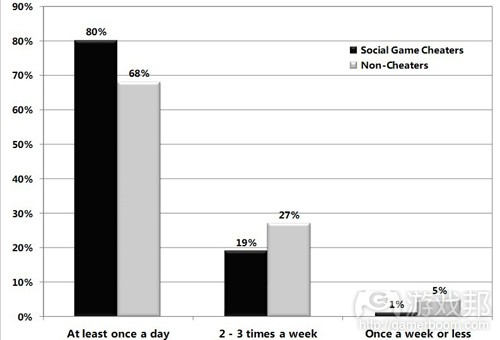
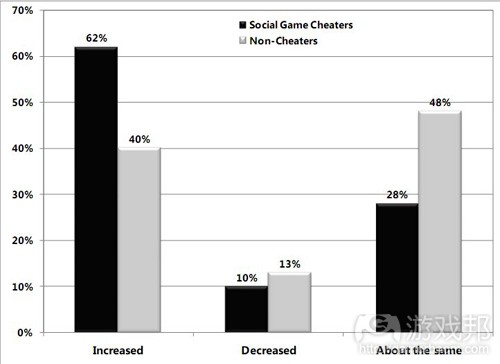
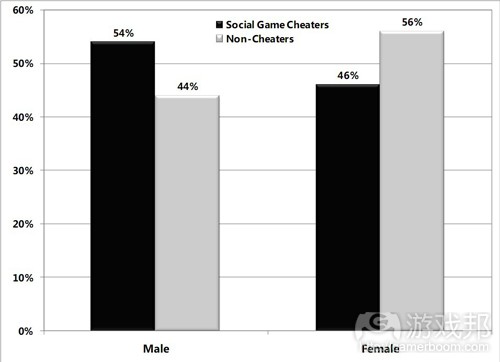
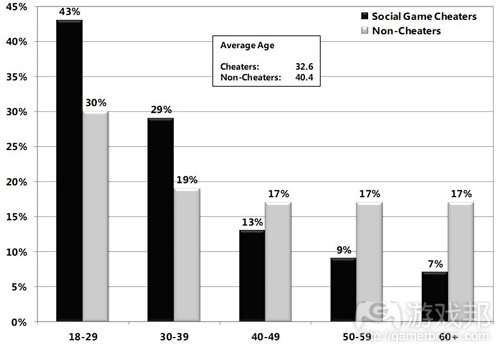
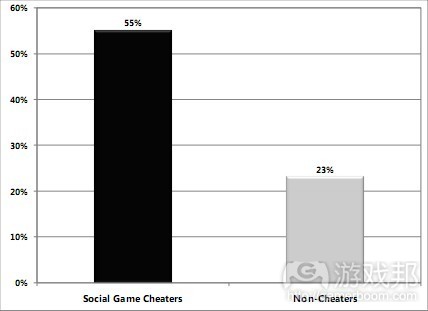

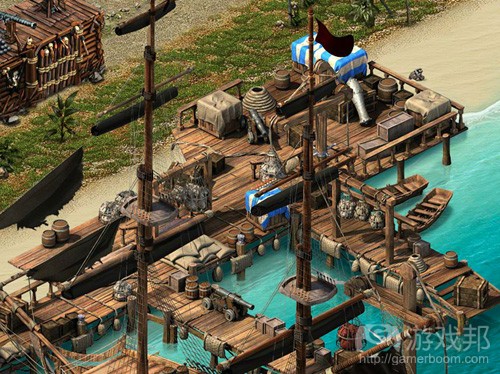
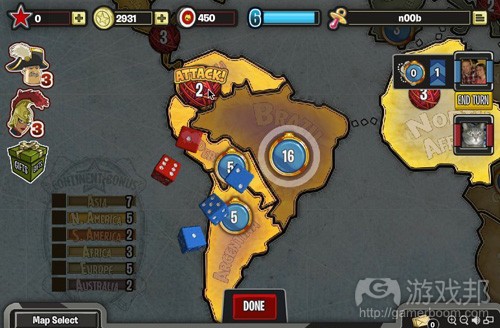















 闽公网安备35020302001549号
闽公网安备35020302001549号